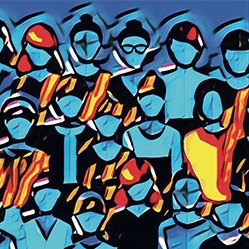Yingshihan (Shihan) Zhu
Epistemic Jet Lag
CUNY, the Graduate Center
Epistemic Jet Lag
A common phenomenon in the #MeToo movement is undertheorized: men who identify as feminists sometimes refuse to believe women’s accusations of sexual harassment before more convincing evidence is unveiled. The major source of their hesitancy is false accusations. We can identify several wrongs in their failure of conferring appropriate credibility upon victims of sexual harassment, but the focus of this paper will be how epistemic injustice manifests itself in the above example. Miranda Fricker reminds us that epistemic injustice involves both epistemic and ethical dysfunctions, the solution to which is cognitive transformation. José Medina adds that political factors are also essential to appropriately address epistemic injustice. The addition of political dysfunction complicates resistance to epistemic injustice, for it now requires affective modification as well. As compelling as they are, neither of these accounts is best suited to elucidate the wrongness of the above phenomenon. The goal of this paper is to fill in this gap by introducing what I call “epistemic jet lag.” Epistemic jet lag happens when one fails to successfully “travel” between different epistemic “worlds.” I will argue that feminist men are epistemically jet lagged in the sense that they have yet to phenomenologically travel to women’s world.

